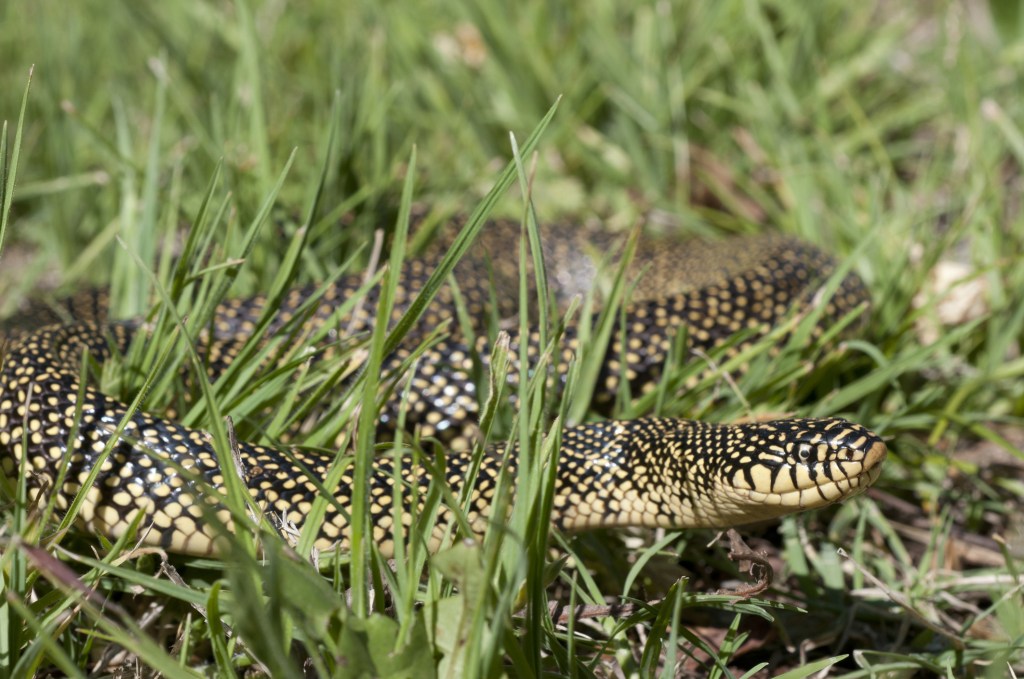King snakes and other native snakes
Published 6:00 am Wednesday, May 10, 2017

- King snakes feed on venomous snakes, which is known as “ophiophagy.” Some species of the king snake cannot be captured, killed or possessed legally in Alabama.
Over the last week, I have received a couple of calls about using our native king snakes as a control method for venomous snakes, such as copperheads.
King snakes do hunt and eat many species of snakes, including venomous ones. This is called “ophiophagy.”
King snakes are also immune to the venom of our local pit vipers, making them adapted to feed on venomous snakes. They use constriction to kill their prey, and are very opportunistic, feeding on a variety of other prey such as birds, rodents, lizards, and eggs.
The king snake’s abilities to feed on venomous snakes is well documented, and videos and pictures of king snakes feeding on other snakes regularly pop up on social media such as Facebook and YouTube. I suspect some recent Facebook videos are what prompted clients to call me, looking for a “source” of king snakes to transport to their homes to control venomous snakes.
There are several different species of king snakes in Alabama, including the black king snakes, speckled king snake, scarlet king snake, speckled king snake, and the prairie king snake. Of these, the scarlet, prairie, and speckled king snakes are illegal to buy, sell, trade or capture.
Please see the information from OutdoorAlabama.com:
“It shall be unlawful to take, capture, kill, or attempt to take, capture or kill; possess, sell, trade for anything of monetary value, or offer to sell or trade for anything of monetary value, the following nongame wildlife species (or any parts or reproductive products of such species) without a scientific collection permit or written permit from the Commissioner, Department of Conservation and Natural Resources, which shall specifically state what the permittee may do with regard to said species … ”
While there are species of king snakes that can bought and sold, I high discourage displacing native wildlife to new habitats. Many of our king snakes are only native to certain parts of Alabama, and will not survive if moved to a different part of the state.
For example, the black king snake is mostly found in the northern parts of Alabama, while the eastern king snake is only found in the southeast portions of the state. Furthermore, each species has slightly different habitat needs that your home may or may not offer. There are also disease issues to consider: transporting wildlife may also transfer diseases to the new location. Finally, the stress of capture, handling, and transportation of native wildlife can lead to death.
There are much better, and easier ways to manage snakes that are around the home. First, snakes that are found in and around building are often seeking the rodents that are found in these areas. Using traps or toxicants to control the mice and rats will often cause the snakes to find other areas to hunt.
Areas outside can also provide shelter for both snakes, and the food they hunt. Piles of firewood, brush piles, lush ornamental gardens, and long grass are other areas that can be home to snakes. Cleaning these areas up can also persuade snakes to move on.
Finally, it is going to be almost impossible to eliminate all snakes around the home, especially in rural or wooded areas. I encourage you to learn how to identify our native snakes, and learn the characteristics and signs that a snake may be venomous. In North Alabama, all of our venomous snakes are going to have a triangle shaped head, and a vertical pupil.
In contrast, non-venomous snakes are going to have an oval or rounded head, plus a round pupil. For more information, please see the Alabama Extension publication, “Identification of Snakes in Alabama for Forest Workers.”
While transporting king snakes to your home is not a viable option, they are a unique species that feeds on venomous snakes, and should be left alone if found. Managing the property around your home and learning to identify our native snakes are important when working to prevent harmful snakes from making your property their home.
For information on topics related to the home and garden, contact any office of the Alabama Cooperative Extension System. The Limestone County Office is located at 1109 West Market Street in Athens. Office hours are 8 a.m.-4:30 p.m. Monday through Friday. For more information, call 256-232-5510 or visit www.aces.edu.




